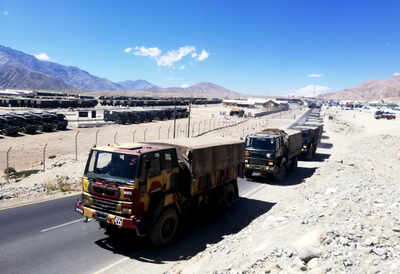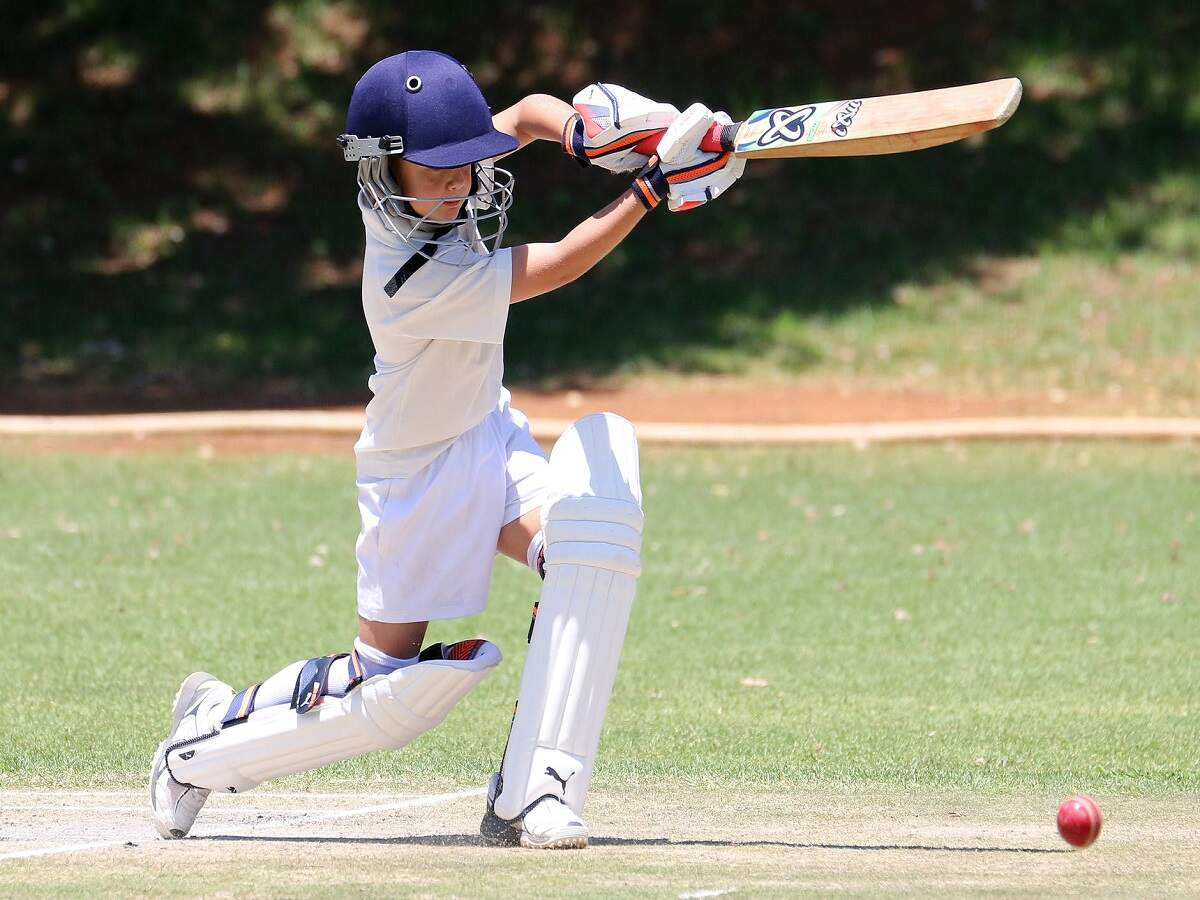
NEW DELHI: The seventh round of military talks between India and China was "positive and constructive" and went on for 12-hours on Tuesday.
During the talks, both sides agreed to earnestly implement the understanding reached by their leaders to not turn differences into disputes, a joint statement by the two armies said on Tuesday.
The two sides deliberated on ways to disengage from various friction points in eastern Ladakh during the nearly 12-hour-long talks in Chushul on the Indian side of the Line of Actual Control (LAC) on Monday. India and Chinese troops are locked in a border standoff in eastern Ladakh for over five months.
"The two sides had a sincere, in-depth and constructive exchange of views on disengagement along the Line of Actual Control in the western sector of India-China border areas," the joint press statement said.
The statement said both sides were of the view that these discussions were "positive, constructive" and had enhanced understanding of each other's positions.
"Both sides agreed to maintain dialogue and communication through military and diplomatic channels, and arrive at a mutually acceptable solution for disengagement as early as possible," the statement added.
"Both sides agreed to earnestly implement the important understandings reached by the leaders of the two countries, not to turn differences into disputes, and jointly safeguard peace and tranquility in the border areas."
Before the meeting, it was said that India will continue to demand complete disengagement and de-escalation by the People's Liberation Army (PLA) from the Eastern Ladakh sector.
Indian forces had taken an aggressive stand and occupied several strategic heights on the southern and northern Pangong lake area preempting Chinese attempts to take them over.
India has a clear stand that the gambit of talks must include disengagement and de-escalation from the entire Eastern Ladakh region for addressing the situation.
The transgressions in Eastern Ladakh took place in April-May timeframe while Singh had taken over the Corps in October last year.
The political and military leadership including External Affairs Minister S Jaishankar, National Security Advisor (NSA) Ajit Doval, Chief of Defence Staff Gen Bipin Rawat, Army chief General Manoj Mukund Naravane and Air Force Chief RKS Bhadauria have been involved in tackling the issue of Chinese transgressions.
The core security team led by the NSA has been actively involved in preemptive and thwarting Chinese bids to occupy strategic heights in the southern and northern Pangong lake area.
At the first informal summit between Prime Minister Narendra Modi and Chinese President Xi Jinping in April 2018, the two sides had emphasised on not allowing difference to become disputes. This understanding has featured in multiple statements by the two countries since then.
The summit had taken place months after the Doklam episode that had significantly strained ties between the two neighbouring countries.
(With inputs from agencies)
During the talks, both sides agreed to earnestly implement the understanding reached by their leaders to not turn differences into disputes, a joint statement by the two armies said on Tuesday.
The two sides deliberated on ways to disengage from various friction points in eastern Ladakh during the nearly 12-hour-long talks in Chushul on the Indian side of the Line of Actual Control (LAC) on Monday. India and Chinese troops are locked in a border standoff in eastern Ladakh for over five months.
"The two sides had a sincere, in-depth and constructive exchange of views on disengagement along the Line of Actual Control in the western sector of India-China border areas," the joint press statement said.
The statement said both sides were of the view that these discussions were "positive, constructive" and had enhanced understanding of each other's positions.
"Both sides agreed to maintain dialogue and communication through military and diplomatic channels, and arrive at a mutually acceptable solution for disengagement as early as possible," the statement added.
"Both sides agreed to earnestly implement the important understandings reached by the leaders of the two countries, not to turn differences into disputes, and jointly safeguard peace and tranquility in the border areas."
Before the meeting, it was said that India will continue to demand complete disengagement and de-escalation by the People's Liberation Army (PLA) from the Eastern Ladakh sector.
Indian forces had taken an aggressive stand and occupied several strategic heights on the southern and northern Pangong lake area preempting Chinese attempts to take them over.
India has a clear stand that the gambit of talks must include disengagement and de-escalation from the entire Eastern Ladakh region for addressing the situation.
The transgressions in Eastern Ladakh took place in April-May timeframe while Singh had taken over the Corps in October last year.
The political and military leadership including External Affairs Minister S Jaishankar, National Security Advisor (NSA) Ajit Doval, Chief of Defence Staff Gen Bipin Rawat, Army chief General Manoj Mukund Naravane and Air Force Chief RKS Bhadauria have been involved in tackling the issue of Chinese transgressions.
The core security team led by the NSA has been actively involved in preemptive and thwarting Chinese bids to occupy strategic heights in the southern and northern Pangong lake area.
At the first informal summit between Prime Minister Narendra Modi and Chinese President Xi Jinping in April 2018, the two sides had emphasised on not allowing difference to become disputes. This understanding has featured in multiple statements by the two countries since then.
The summit had taken place months after the Doklam episode that had significantly strained ties between the two neighbouring countries.
(With inputs from agencies)
Download
The Times of India News App for Latest India News

Coronavirus outbreak
Trending Topics
LATEST VIDEOS
India
 COVID-19: Don't be careless when it comes to wearing masks, says PM Modi
COVID-19: Don't be careless when it comes to wearing masks, says PM Modi  India’s COVID-19 recovery rate highest among all countries: Harsh Vardhan
India’s COVID-19 recovery rate highest among all countries: Harsh Vardhan  Dr Balasaheb Vikhe Patil’s work will inspire generations to come: PM Modi
Dr Balasaheb Vikhe Patil’s work will inspire generations to come: PM Modi  India continues to be among countries with lowest per million Covid-19 cases, deaths: Health ministry
India continues to be among countries with lowest per million Covid-19 cases, deaths: Health ministry  3 school teachers booked under PSA, action will be taken if needed: IGP Kashmir
3 school teachers booked under PSA, action will be taken if needed: IGP Kashmir  India will have COVID vaccine from more than one source by 2021: Harsh Vardhan
India will have COVID vaccine from more than one source by 2021: Harsh Vardhan
More from TOI
Navbharat Times
Featured Today in Travel
Quick Links
Coronavirus in MumbaiCoronavirus in KolkataCoronavirus in HyderabadCoronavirus in DelhiCoronavirus in BangaloreCoronavirus symptomsCoronavirus in IndiaBihar elections 2020Coronavirus NewsSolar EclipseNPRWhat is NRCCAB BillCAB and NRCRTI BillPodcast newsLok SabhaUS Election 2020CongressBJP newsUIDAIIndian ArmyISRO newsSupreme Court
Get the app



